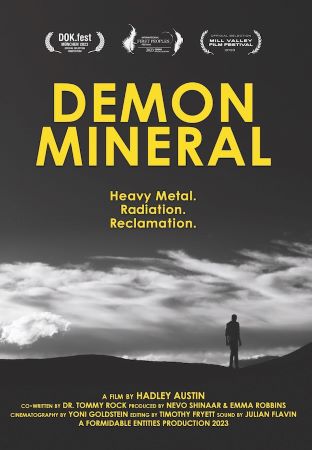
Demon Mineral 2023
Distributed by The Video Project, 145 - 9th St., Suite 230, San Francisco, CA 94103; 800-475-2638
Produced by Emma Robbins and Nevo Shinaar
Directed by Hadley Austin
Streaming, 88 mins
College - General Adult
Environmentalism; Native Peoples; Public Health
Date Entered: 04/19/2024
Reviewed by Samuel Kim, GIS & Geospatial Librarian, University at BuffaloHadley Austin’s Demon Mineral is a documentary that highlights the fallout of the mid-century uranium gold-rush to its most affected population: members of the Navajo Nation. The documentary provides a lens into an adversely affected community that is often ignored by mainstream media.
The documentary considers the perspectives of several members of the Navajo Nation who have been exposed to the contaminated waters near various uranium mines. Each anecdote from interviewees is quite chilling as the narrator, also member of the Navajo Nation, identifies as an outsider to the community unaware of such issues.
The documentary is paced well. It starts off by explaining the key context of cultural issues surrounding the Navajo Nation and contextualizing how aspects of their culture made them more vulnerable to the fallout of uranium mining. Austin follows that up by establishing authority of a few key interviewees, highlighting their lived experiences in contaminated lands, as well as the scholarship published by a number of community members. The film caps off by using this foundation to identify a new threat: legislation that would bypass preservation efforts.
Throughout the film, Austin does not shy away from highlighting less-altruistic parties and champions the plight of members of the Navajo Nation to show how aspects of their culture were lost.
Demon Mineral opens up a critical discussion about the long-term effects of mining and the systematic oppression of the indigenous community which is why I highly recommend the film for courses with an interest in environmentalism, human rights, public health, and indigenous studies.
Awards: Slamdance Film Festival, Audience Award, Best Documentary Feature
Published and licensed under the Creative Commons Attribution 4.0 license. Anyone can use these reviews, so long as they comply with the terms of the license.